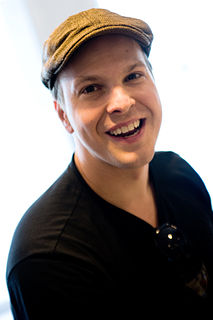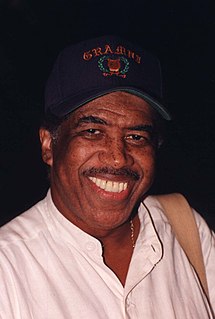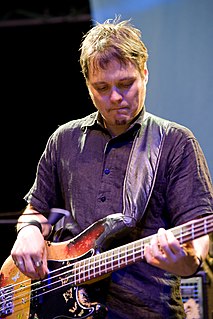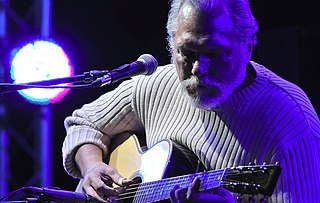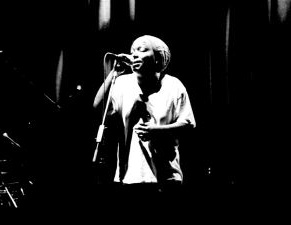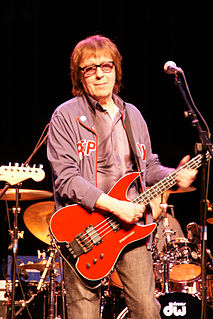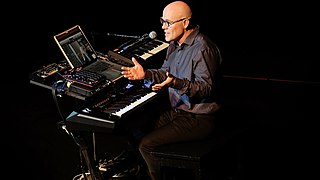A Quote by Gavin DeGraw
I could tell it was a popular move as a writer to walk down the bass lines while you were writing a song.
Related Quotes
During those times like in my early years as a writer I could actually write a song in ten minutes because all of a sudden a song is writing itself, I'm just putting down words. It just seem each line that you put down flows with the other ones. It's like writing a love letter you don't think about it, it's something from the heart.
If any of you on your journeys see her-shout to me, whistle...he sang, and it became a habit for audiences to shout and whistle in response to those lines. There was nowhere he could hide in such a song that had all of its doors and windows open, so that he could walk out of it artlessly, the antiphonal responses blending with him as if he were no longer on stage.
I started with the chorus of that song, kind of like a fun bouncy thing to play, and then one of the lines popped up: 'I got things to do today, people to see, things to say.' I wrote about a dozen verses for it, but no song needs to be that long unless you're Bob Dylan. So when we recorded it I started to tear it down to some of the lines I thought were the funniest.
There were always men looking for jobs in America. There were always all these usable bodies. And I wanted to be a writer. Almost everybody was a writer. Not everybody thought they could be a dentist or an automobile mechanic but everybody knew they could be a writer. Of those fifty guys in the room, probably fifteen of them thought they were writers. Almost everybody used words and could write them down, i.e., almost everybody could be a writer. But most men, fortunately, aren't writers, or even cab drivers, and some men - many men - unfortunately aren't anything.
I started playing bass in my friend's band for some reason. It was just something I did because, well, he asked me if I wanted to play bass and he played me this song - Nirvana's version of "Molly's Lips", the Vaselines song - and he said, "You can do this! This is not hard!" and it's like a two-note song. I learned that and then I thought I was a genius.
As soon as I start to write I'm very aware, I'm trying to be aware that a reader just might well pick up this poem, a stranger. So when I'm writing - and I think that this is important for all writers - I'm trying to be a writer and a reader back and forth. I write two lines or three lines. I will immediately stop and turn into a reader instead of a writer, and I'll read those lines as if I had never seen them before and as if I had never written them.
